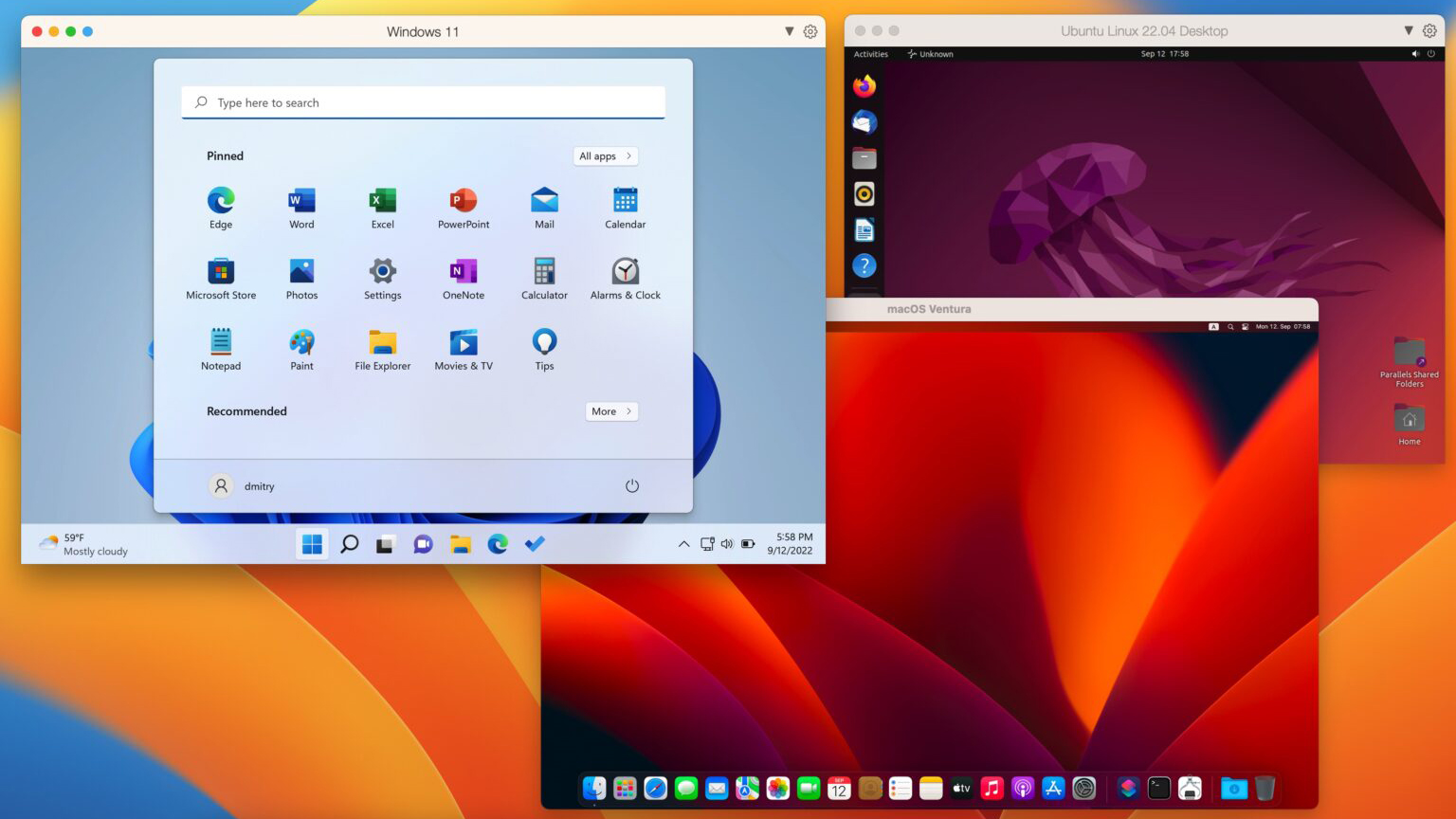Microsoft has announced that Apple Mac users can now use virtual machine software Parallels as an “authorized solution” for running Windows 11 on hardware equipped with the company’s own silicon (M1 and M2 chips).
Ever since Apple ditched Intel chips, it has been difficult for users to run Windows 11 on a Mac device. While there have been some dodgy workarounds, companies seeking an official solution have been left without one, leaving them issuing workers Windows-only devices, or a secondary device.
Available now, Parallels 18 can now run Arm versions of Windows 11 Pro and Windows 11 Enterprise on M1 and M2 Macs including the MacBook Air, MacBook Pro, Mac mini, iMac, and Mac Studio.
Windows 11 on Mac M1/M2
“Licensing the Windows 11 operating system that runs on the Mac device is straightforward,” a Parallels blog post (opens in new tab) noted. “The same volume licensing system that addresses enterprise licensing, such as Key Management Services (KMS), can be used to provide Pro or Enterprise licenses to the Windows 11 guest operating system.”
While the chosen version of Windows 11 will run in a virtual environment, the software doesn’t support nested or double virtualization, so things like Windows Subsystem for Android and Windows Subsystem for Linux are out of the question.
“The preferred customer experience is to run 64-bit Arm apps, but customers can also use apps in x64 or x86 emulation on Mac M1 and M2 computers,” Microsoft added in a Windows blog post (opens in new tab).
This means you won’t be able to run 32-bit apps, however there shouldn’t be many left because they are being deprecated for Arm versions of Windows anyway.
Only personal versions of Parallels can be bought for in one transaction, meaning business-oriented plans require an annual subscription. Add to that the licensing cost of Windows 11 and you’ve got a pretty expensive solution. Even so, it could end up being a cheaper solution than buying a secondary device for workers who require access to Windows-only software.





